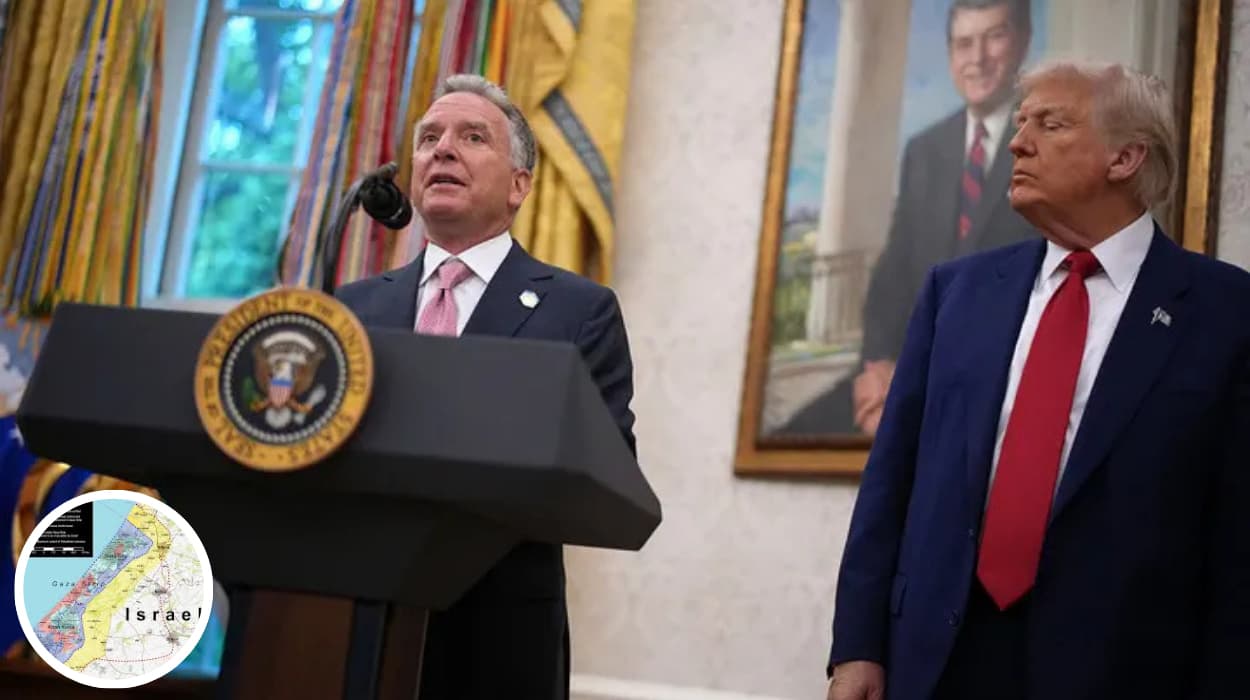Summary
- Hamas rejects criticisms from President Donald Trump and developer Steve Witkoff, urging the US to pressure Israel on Palestinian issues.
- The group accuses Trump and his allies of biased stances favoring Israel without addressing Palestinian rights.
- Hamas calls for a shift in US policy, demanding international intervention to end Israeli aggression.
- The story reflects ongoing tensions amid recent escalations in Gaza and diplomatic friction involving US political figures.
- US domestic politics and foreign relations with Israel and Palestine remain highly contentious with multiple perspectives in media.
Hamas has strongly pushed back against criticisms from President Donald Trump and real estate developer Steve Witkoff, accusing them of biased stances favoring Israel and neglecting Palestinian rights. The group demands that the United States use its influence to pressure Israel to end military operations and respect Palestinian territories. This response highlights ongoing tensions amidst recent escalations in Gaza, reflecting the complex and polarized nature of US-Middle East relations and the challenges involved in achieving a balanced international approach to the conflict.
What is Hamas' Response to Criticisms from Trump and Witkoff?
As reported by various news media covering Middle East developments and US political discourse, Hamas officials have strongly pushed back against recent criticisms by President Donald Trump and real estate developer Steve Witkoff. According to Hamas spokespersons, these criticisms are considered unjust and heavily biased in favor of Israel, neglecting the Palestinian plight. Hamas insists that the United States, rather than making what it calls "one-sided condemnations," should use its influence to pressure Israel to halt military operations and respect Palestinian rights and territories.
This response comes amid increasing political debate within US circles where Trump and some of his allies have made statements critical of Hamas while portraying Israel predominantly as a victim needing support. Hamas representatives, as noted by correspondents reporting on the issue, have rejected such rhetoric as oversimplified and provocative, stressing the complexity of the conflict and the necessity for an impartial US role.
Why is Hamas Demanding the US Pressure Israel?
Hamas underscores what it calls the persistent and systematic aggression by Israeli forces against Palestinians, including military strikes in Gaza that have resulted in civilian casualties. The group calls on the US government, a key ally of Israel and a powerful global actor, to exercise pressure on Israel to cease these operations. The demand is rooted in deep-seated grievances over Israeli policies including settlement expansions, blockades, and restrictions that severely impact Palestinian lives.
This stance aligns with Hamas's long-held position advocating for recognition and justice for Palestinians under occupation, as well as a broader call for international intervention to alter the dynamics of the Israeli-Palestinian conflict. Journalists covering this narrative emphasize that Hamas views US support for Israel without conditionality as a major obstacle to peace and stability in the region.
How Have Trump and Steve Witkoff Criticized Hamas?
President Trump, during his post-presidential engagements and public comments, has maintained a firm stance against Hamas, often describing the group as a terrorist organization responsible for violence and instability in the region. Trump’s critiques, mirrored by influential figures such as Steve Witkoff, focus on Hamas’s militant tactics and its refusal to recognize Israel’s right to exist.
Witkoff, known for his vocal political opinions in media interviews, has also criticized Hamas for launching rocket attacks and engaging in what he terms "unprovoked aggression" against Israeli citizens. These criticisms emphasize security concerns and justify continued US and Israeli military actions as defensive measures.
What Are the Broader Implications for US Foreign Policy and Middle East Relations?
The confrontation between Hamas's calls for US pressure on Israel and the Trump-Witkoff criticisms highlights the persistent divide in American discourse over the Middle East conflict. Analysts and reporters point out that US policy often fluctuates between strong support for Israel and pressure for peace processes depending on administration dynamics and electoral politics.
At present, the US continues to navigate complex alliances, with President Trump’s legacy influencing ongoing debates about aid, diplomacy, and security cooperation with Israel. The role of private sector voices like Witkoff's adds dimensions to public perceptions and political lobbying efforts related to the conflict.
The situation remains fluid as diplomatic efforts, international law considerations, and humanitarian concerns converge, with media coverage reflecting diverse international perspectives on these developments.
What Are the Latest Developments in the Gaza Conflict and International Reactions?
Recent weeks have witnessed renewed violence in Gaza, with significant casualties among civilians attempting to seek aid, as reported by multiple sources. This escalation has intensified scrutiny of Israeli military operations and the international community’s responses.
Notably, international bodies and some governments outside the US have criticized the indiscriminate nature of some attacks and the resultant humanitarian crisis. Simultaneously, some US politicians reiterate strong support for Israel's security while calling for measured responses to protect civilians.
The tension is further complicated by related actions such as the US-approved sale of bomb guidance kits to Israel, reported as part of ongoing military support despite condemnation from various quarters.
The media landscape around this story reflects a polarized debate, with Hamas’s narrative confronting the American and Israeli official positions head-on.
How Does This Situation Reflect on Media Coverage and Public Perception?
Journalistic assessments of this story emphasize the challenges of balanced reporting amid a highly charged geopolitical conflict. Media titles highlight the importance of including multiple perspectives—from Hamas’s demands to the US political criticisms—to provide comprehensive coverage.
As demonstrated, the reporting draws from statements by political figures, on-the-ground incidents, and international diplomatic actions. This extensive scope is necessary for readers to understand the complexities involved and the divergent narratives shaping global opinions.

